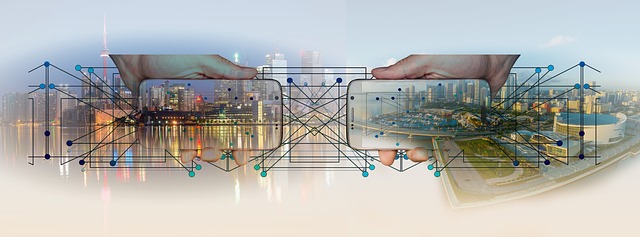Revolutionizing Industries: The Limitless Impact of AI Technology’s Transformative Potential
Artificial Intelligence (AI) technology has been a buzzword in the tech industry for quite some time now. From self-driving cars to virtual assistants, AI has already made its way into our daily lives. But its potential goes far beyond just making our lives easier. In fact, AI technology has the power to revolutionize entire industries and transform the way we live and work. In this article, we will explore the limitless impact of AI technology and how it is poised to change the world as we know it.
The Current State of AI Technology
Before we dive into the potential of AI, let’s first understand its current state. AI refers to the ability of machines to mimic human intelligence and perform tasks that typically require human cognition, such as problem-solving, decision-making, and learning. This is achieved through a combination of algorithms, data, and computing power.
The field of AI has been around since the 1950s, but it is only in the last decade that we have seen significant advancements. This is due to the rise of big data and the availability of powerful computing systems. Today, AI is being used in various industries, including healthcare, finance, retail, and manufacturing, to name a few.
AI’s Transformative Potential in Healthcare
Healthcare is one industry that stands to benefit greatly from AI technology. With the help of AI, healthcare providers can analyze vast amounts of patient data to identify patterns and make more accurate diagnoses. This can lead to earlier detection of diseases and more effective treatments.
AI can also assist in drug discovery and development. By analyzing large datasets, AI algorithms can identify potential drug candidates and predict their effectiveness. This can significantly speed up the drug development process and lead to more personalized treatments for patients.
In addition, AI-powered robots can assist in surgeries, reducing the risk of human error and improving patient outcomes. This is especially beneficial in complex procedures where precision is crucial.
The Impact of AI on Finance
The finance industry is another sector that is ripe for disruption by AI technology. One of the biggest applications of AI in finance is in fraud detection. By analyzing transaction data, AI algorithms can identify suspicious patterns and flag potential fraudulent activities. This not only helps prevent financial losses but also improves customer trust.
AI can also be used for risk management and investment strategies. By analyzing market trends and data, AI algorithms can make more accurate predictions and help investors make informed decisions. This can lead to better investment outcomes and reduce the risk of financial losses.
Furthermore, AI-powered chatbots are being used in the finance industry to improve customer service and streamline processes. These chatbots can handle routine tasks, such as account inquiries and transaction requests, freeing up human agents to focus on more complex issues.
The Future of Transportation with AI
The transportation industry is on the brink of a major transformation, thanks to AI technology. Self-driving cars are no longer just a concept, but a reality that is already being tested on roads. These cars use a combination of sensors, cameras, and AI algorithms to navigate and make decisions on the road.
The potential impact of self-driving cars goes beyond just making our commute more convenient. It can lead to a significant reduction in accidents caused by human error, making roads safer for everyone. It can also reduce traffic congestion and improve fuel efficiency, leading to a more sustainable future.
But it’s not just cars that are being revolutionized by AI. The aviation industry is also exploring the use of AI-powered autonomous planes to improve safety and efficiency. And with the rise of drones, we could soon see AI-powered delivery services, leading to faster and more efficient deliveries.
The Ethical Considerations of AI
As AI technology continues to advance and integrate into our lives, it is crucial to consider the ethical implications. One of the biggest concerns is the potential loss of jobs due to automation. While AI may create new job opportunities, it could also lead to job displacement in certain industries.
There are also concerns about bias in AI algorithms, which can perpetuate discrimination and inequality. It is essential for companies and developers to prioritize ethical considerations and ensure that AI is used responsibly and ethically.
In addition, there are concerns about the collection and use of personal data in AI. As AI relies on data to learn and make decisions, there is a risk of privacy infringement. It is crucial for companies to be transparent about their data collection and usage practices and ensure that proper security measures are in place.
The Limitless Potential of AI Technology
In conclusion, AI technology has the power to revolutionize industries and transform the way we live and work. From healthcare to finance to transportation, the potential applications of AI are limitless. However, it is crucial to consider the ethical implications and ensure responsible and ethical use of AI. As we continue to push the boundaries of AI, we must also prioritize the well-being of society as a whole. With careful consideration and responsible use, AI has the potential to create a better, more efficient, and more sustainable future for all.

